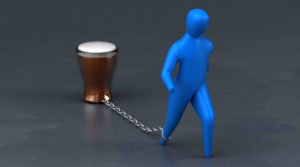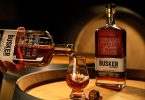DIGI’s distilled argument for 15% excise reduction

The DIGI report has recommended a 15% reduction in alcohol excise tax over the next two years.
Rosemary Garth continues, “On the one hand, the Government acknowledges and appreciates the benefits of a thriving, innovative sector that exports internationally, creates jobs and invents new products, on the other it sees no issue in burdening those same productive, innovative businesses with a punishing excise tax and a high VAT rate.”
Punitive Irish excise
Where Ireland has the highest excise levy on wine in the EU at 80 Cent, in contrast the French excise levy is just 1 Cent on a 187ml glass of wine and the Germans levy five Cent on a pint of lager where we charge 55 Cent, the second-highest excise tax on beer in the EU.
Ireland, home to some of the world’s most famous beers (and some of its most famous whiskeys), levies 54 Cent excise on a pint of stout served in a pub where the levy is just five Cent in Spain.
The report also finds that 43% of consumers who’ve noticed an increase in prices as a result of the 2018 VAT hike say they’ve reduced their spending at restaurants, hotels and cafés. Over the long term, bar sales volume and average alcohol consumption has declined substantially.
This is significant as 89% of public houses, 79% of licensed hotels and 65% of restaurants are located outside Dublin and the number of Seven-Day licences has decreased from 8,617 in 2005 to 7,072 in 2018, a decline of 17.9% or 1,545 enterprises.
This decline is largely a rural phenomenon where Dublin pubs decreased from 786 to 776, a decline of 10 or 1.3%, non-Dublin pubs declined from 7,831 to 6,296, a drop of 19.6% or 1,535 enterprises.
Off-trade
Today’s independent off-licences face severe competition from large multiple chains with small enterprises being particularly hit by the working capital requirements needed to fund high excise levels.
With 37% of off-licences believing they’ll be closed within the next 10 years and 10% of publicans in rural Ireland planning to let staff go this year due to business costs, the volume of bar sales decreased by 1.3% in 2018 compared to an increase of 3.6% in 2017 and an increase of 3.2% in 2016, according to CSO retail sales data.
But the 2018 volume of bar sales is still only about three-quarters of the pre-economic collapse 2007 level.
Employment
Yet despite pulling in such huge amounts in excise tax, the
63,000 jobs throughout Ireland are directly provided by the drinks sector while, together, the drinks and hospitality sectors pull in €1.43 billion in export earnings leading to a beverage trade surplus of €587 million in 2018 (beverage exports are 1.69 times beverage imports).
Over 60% of the Irish beer market is supplied domestically as is about one-third of its spirits market and over 80% of the cider market.
But domestic drinks enterprises and brands face substantial and increasing competition from imported beverages. Imports supply 35% of beer consumption, 64.3% of spirits consumption and 14.3% of cider consumption. Wine – all imported – accounts for 27.6% of total alcohol consumption.
All this led to a bar and off-licence alcohol market in 2018 estimated at €7.54 billion.
In 2018, the Exchequer received €1.38 from every pint costing €4.50 or 31% of the price, consumed in bars; it received €1.81 or 34% from every restaurant glass of wine costing €5.38; it received €16.55 or 67% of the price of a €24.78 off-licence bottle of whiskey and €5.12 or 50% of the price of a €10.30 off-licence bottle of wine.
The increases in Budget 2014 left all four beverage groups with higher excise rates than in 2007.
As a result, the DIGI report has recommended a 15% reduction in alcohol excise tax over the next two years.








